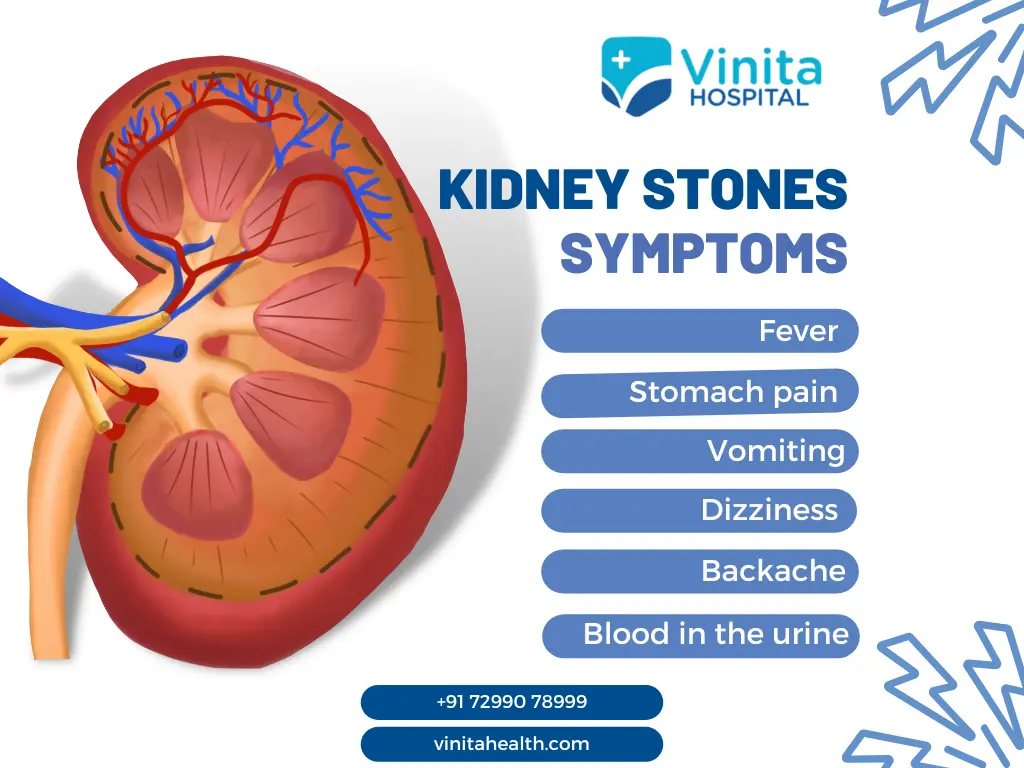Kidney stones, known as nephrolith or renal calculi. This is the most common health condition linked to the urinary system. Every year in India almost half of the people from the total population have common problems like kidney stones.
Sometimes in the initial stage of kidney stone, early symptoms are not predictable, just having slight abdominal pain people ignore thinking of having irregular gas tendency. Before any serious complication may arise kindly overview this blog to know what kidney stone early symptoms are.
What are Kidney Stones?
Kidney stones are clumps of hard salt and minerals often made up of calcium or uric acid. They escalate inside the kidney and can move to other parts of the urinary tract. First of all, it is just like rice grain size, then it eventually becomes big in size. It varies in size.
Some are small and some grow big as time passes. In some cases, the stone size becomes so big it takes up the entire kidney. kidney stone early symptoms can’t be identified because initially, it is just like rice grain size.
Why are Kidney Stones Formed?
A kidney stone forms when there is an excessive deposit of certain minerals like calcium or uric acid in your body or urine. When you are not well-hydrated, your urine starts developing certain minerals in higher quantities, and then together they are clumped in your urinary tract or other parts of your body. When there are high levels of minerals it’s more likely that a kidney stone will form.

Who is More Prone to Kidney Stones?
Symptoms of passing a kidney stone are mostly found in people who have diabetes or obesity. Even if Kidney stones can also be caused by a genetic condition known as cystinuria.
However, with kidney stone early symptoms are not visible more because the smaller kidney stone remains in the kidney and won’t show any signs of complications. You won’t face any issues till it moves into your ureter – the tube that urine moves through your kidney to your bladder. Sometimes with only medications, the smaller stone can exit from your body through your urine.
The small stone may move out through your urine within 31 to 45 days. If your stone won’t pass through urine within this time frame, then consult a doctor for a better diagnosis. Vinita Hospital has a kidney stone specialist in Chennai named Dr. Sarita Dasari can help you out with these problems. A casual attitude towards your health can higher the risk of kidney damage and other complications.
What are the 9 Signs and Kidney Stone Early Symptoms?
The kidney stone early symptoms are
Pain in the Back, Belly, or Side
The first kidney stone early symptoms are pain that starts in the back, belly, or some side it is just like a needle poking pain but gradually it starts paining like childbirth pain, which is unbearable for the patient to stand for a while or a movement. If you observe such traumatic experiences kindly seek medical help from Vinita Hospitals doctors who are well-trained enough to examine and identify your stone size.
Pain or Burning During Urination
While urination, you can feel a burning sensation. Mostly this happens when stone reaches the junction between your ureter and bladder.
Sometimes Feel like Urgent Need to Go
Needing to rush to the bathroom more urgently or frequently than usual is another sign of kidney stone early symptoms. This happens when the stone has moved into the lower part of your urinary tract.
Blood in the Urine
Blood in the urine is a sign of kidney stone early symptoms which are known as hematuria. Blood can look red, pink, or brown. Immediately consult a doctor who can test your urine and check up on your problems like hematuria, which is very difficult in seeing without a microscope.
Cloudy or Smelly Urine
Healthy urine is clear and does not have any smell or odor. Cloudy or foul-smelling happens when you have any sign of infection like in your kidney or other parts of the urinary tract.
Going a Small Amount at a Time
The early symptoms of kidney stones also stop your usual urine flow or sometimes there will be a small amount of urine.
Nausea and Vomiting
This is common having nausea and vomiting. This occurs because of shared nerve connections between the kidneys and the GI tract.
Fever and Chills
Fever and chills are kidney stone early symptoms. It happens when there are signs of an infection in your kidney or another part of your urinary tract. Sometimes it can be a serious complication as well.
A Constant Need to Urinate or Pee
If you pee or urinate a constant urge to do more but little comes out when you go, which is a sign of an infection in your kidney or urinary tract.
Conclusion
These are 9 Signs and Symptoms of Kidney Stones, if you have all those above complications then you need to have immediate medical help. Take an appointment at Vinita Hospital, their experienced doctor will check you up and identify your stone size and will give you effective kidney stone treatment.
Read also Best Exercise for Kidney Stones.





